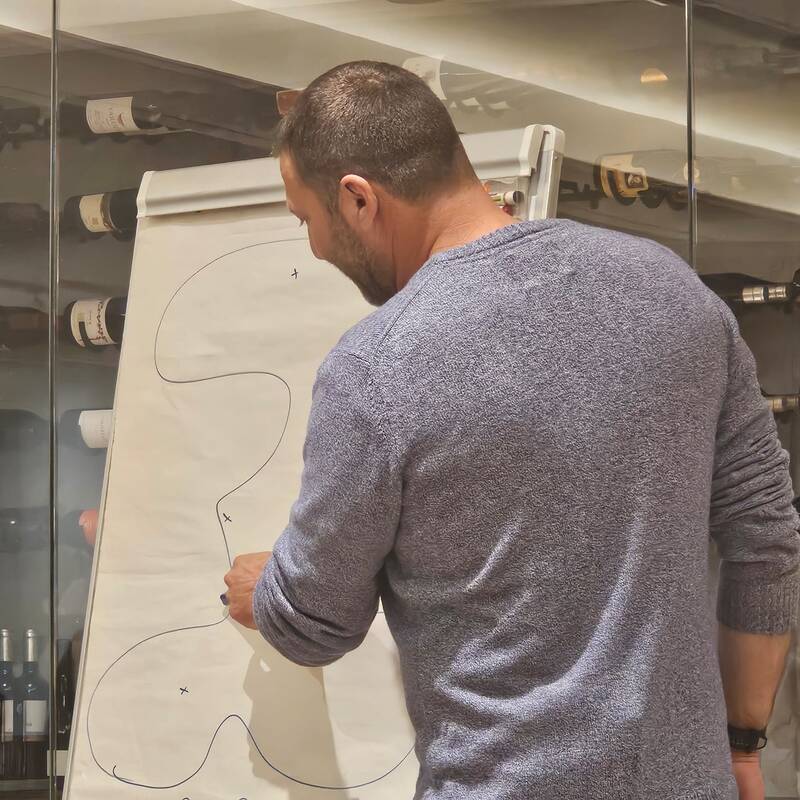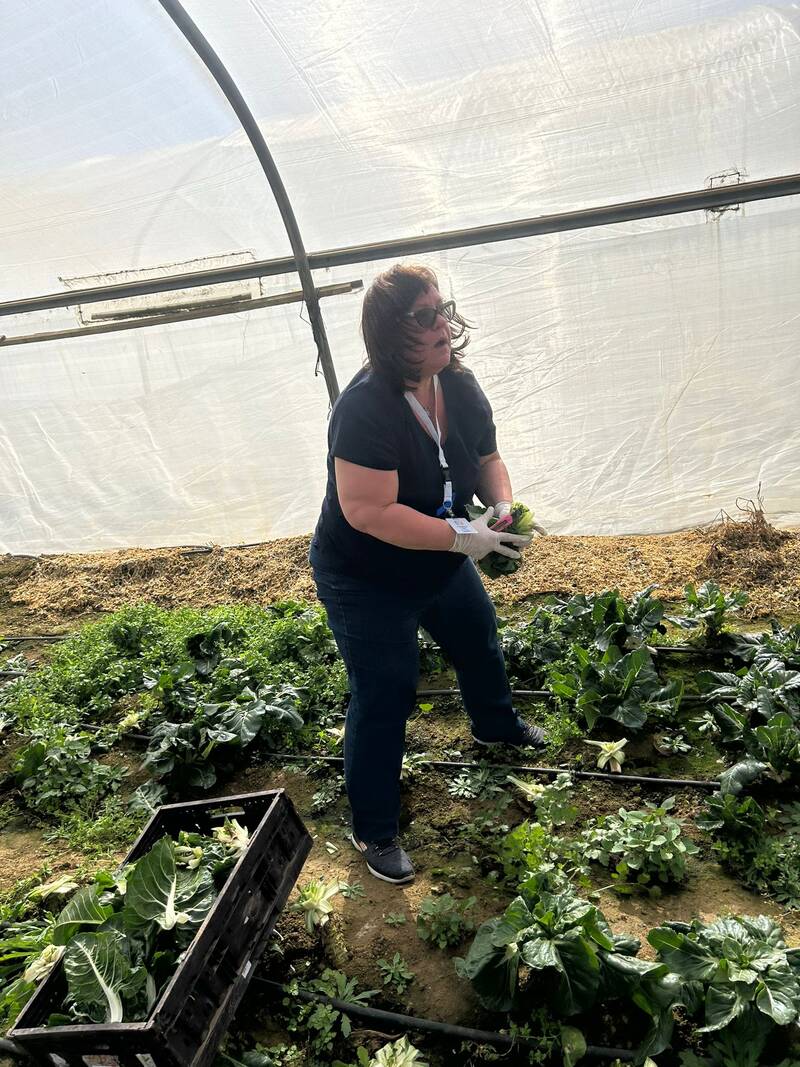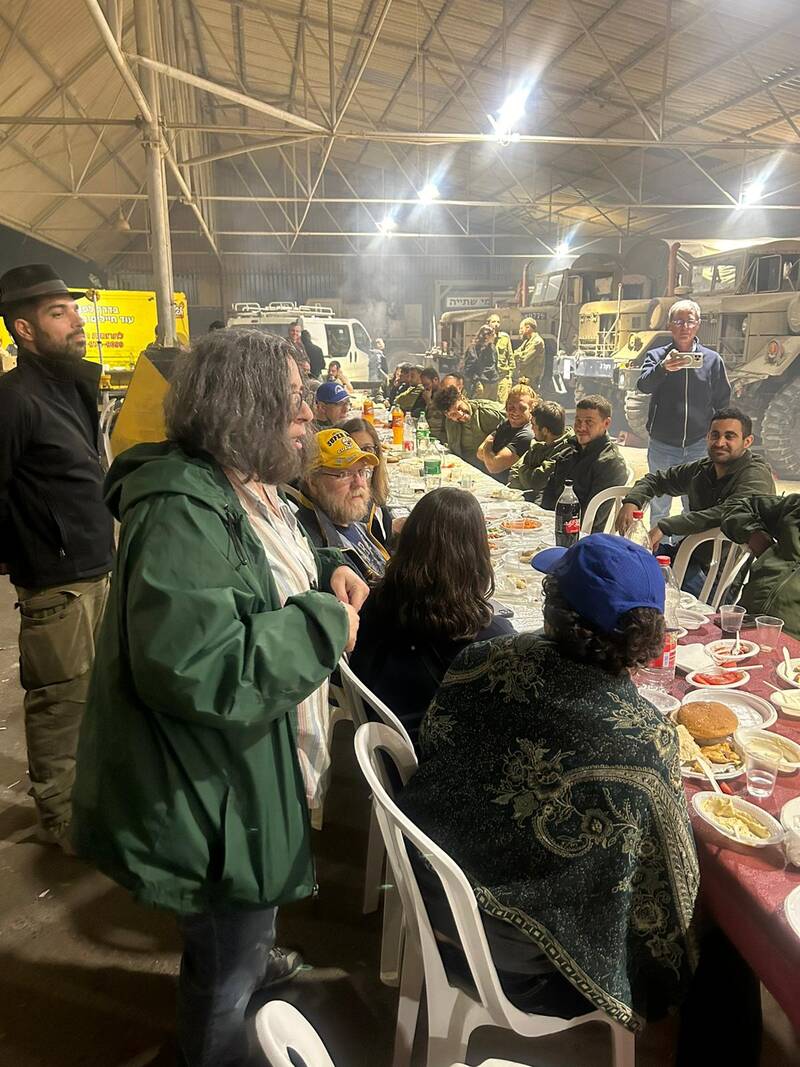Day 3 - 95% heaven, 5% hell
14/02/2024 02:34:00 PM
We started our day with a presentation at our hotel by Barak, a long-time resident of Netiv Ha'asara. Barak, his wife Aya and 4 sons have been evacuated from their home and living in 2 hotel rooms in Tel Aviv since shortly after the attacks.
Barak gave us a history of life in the region, the various conflicts and the measures (complex, expensive and seemingly never-ending) taken over the years to secure Netiv Ha'asara.
In his words: " I was naive enough to believe in peace".
He made very clear that he and the other residents did everything in their power to ensure the safety of everyone in the moshav. While they would like to return to their home, they are waiting on the government : the outcome of the war and , of course, plans for the future of Gaza.
He shared, in explicit detail, what happened in his community - to his friends, family and neighbours - on October 7.
Acknowledging that many couldn't understand why they would choose to live there, he explained that life on the moshav was 95% heaven and 5% hell.
A masterful speaker, Barak's warmth, humour and deep pain left me shaken and wondering if I would be willing to live with those numbers.

Our first stop of the day was Moshav Shokeda, a religious moshav in the "Gaza envelope". Today's task was harvesting beetroot leaves. I wondered whether or not it was a make-work project until one of the leaders of the moshav spoke and thanked us for helping them. They used to have 80 labourers and now have 8 and cannot keep up with all the work that needs to be done.
Rockets (from our side) were being fired the entire time we were working.
I couldn't help but wonder: how do people live like this?
I understood why- just as Barak said earlier: it's their home.

After our adventure in agriculture we visited Kibbutz Be'eri, site of the music festival where part of the massacre took place on October 7. We held a mincha service and said kaddish.
Similar to 'hostages square', there were many groups visiting, singing, praying and simply trying to process the savagery that took place on that now-hallowed ground. Makeshift memorials for those murdered there were all over. Trees have now been planted in a grove near the edge of the property in their memory.
And, of course, there were photos, posters and messages about the 134 hostages still in captivity.
Nearby Kfar Aza was our next stop. We were greeted by "daughter of the kibbutz", Chen. She spoke of the close-knit community, where most of her family and many friends who are like family lived together for years, less than a kilometer from the Gaza border.
Despite having laryngitis, she chose to meet with us and share her story. 63 members of her community were killed, 19 were taken hostage, 5 still remain in captivity.
Chen led us through the kibbutz, explaining the horrific events of October 7, as pieced together from first-hand accounts and text messages.
Like Barak this morning Chen was articulate, passionate and heartbroken about the trauma shared by her community. She quietly pleaded with us to share what we'd heard with our own communities and to fight, with whatever resources we could muster to ensure the remaining hostages were released.
Her last word to us was simple, powerful and laden with meaning: shalom.
I was pretty much emotionally wrung out after that and would have gladly called it a day. Alas, there were, as the saying goes, miles to go before I could sleep.
Through our guide for the trip, we arranged for a food truck to visit a reservists' base and we joined the soldiers for a barbecue dinner.
There were many rousing rounds of "Am Yisrael Chai" along with lots of getting-to-know-you chatter and laughs despite the broken Hebrew and broken English.
The soldiers were grateful to us for the dinner and for our support. I was able to deliver the hats our Chesed Knitters made and the letters our Hebrew School students wrote to them.
One quiet soldier, Eitan, had a question for us: "why doesn't the world believe us when we tell them what we've seen"?




